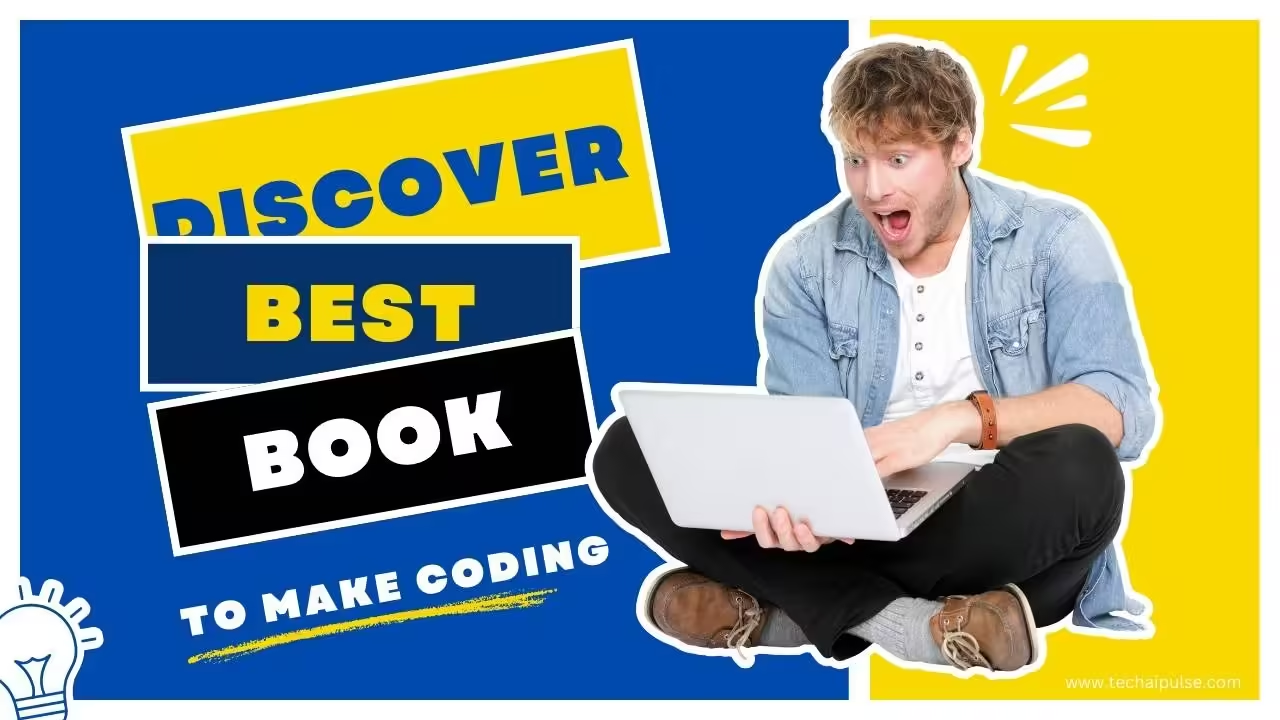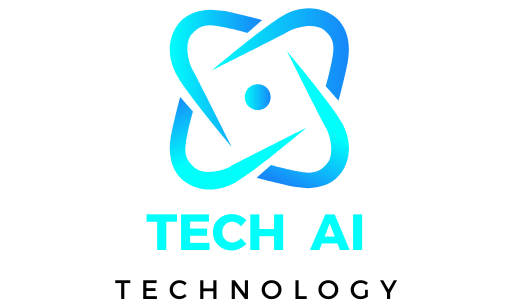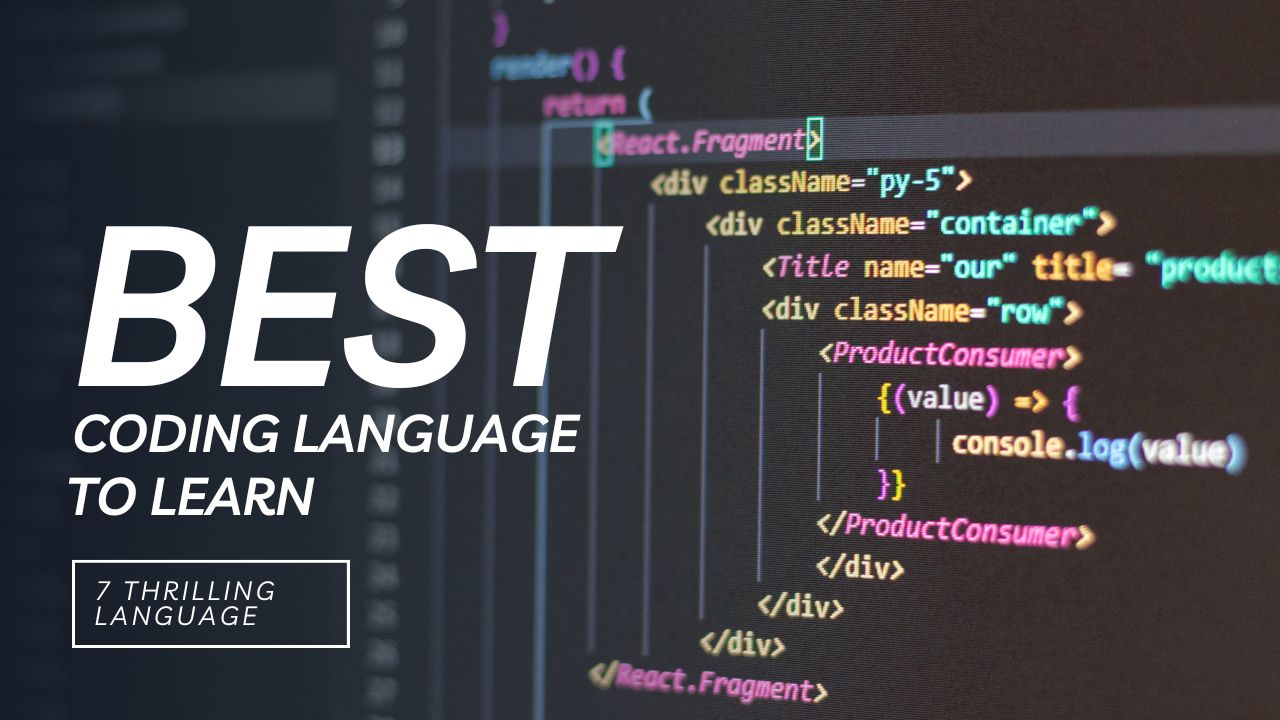Choosing the best coding language to learn first is crucial for beginners stepping into the programming world. If you’re in the U.S. and looking to break into software development, web design, or data science, starting with the correct language can set you up for success.
But how do you decide with options like Python, JavaScript, Java, and C++? This guide breaks down the most beginner friendly programming languages, focusing on ease of learning, job demands, and real world applications. Whether you want to build websites, develop software, or dive into AI, we’ll help you find the best coding language for beginners to kickstart your journey confidently.
Best Coding Language to Learn First: A Beginner’s Guide
Which Programming Language Should You Learn First?
The best computer language to learn first depends on your goals, but Python is widely considered the best choice for beginners. It is easy to read, has a simple syntax, and is used in web development, data science, and artificial intelligence. JavaScript is essential for building websites.
Java and C++ are great options for software development. Learning the correct language can open doors to high paying tech jobs and make coding an exciting and rewarding career.
Why Python is the Best First Programming Language
Python is the top choice for beginners because of its simple and readable syntax, making it easier to understand than other languages. It is used in machine learning, automation, web development, and game design.
Many top companies, including Google, Facebook, and Netflix, use Python for various applications. The strong developer community, extensive libraries, and beginner friendly tutorials make learning Python an excellent starting point for anyone new to coding.
JavaScript: The Best Language for Web Development
If you want to build interactive websites, JavaScript is the most essential language to learn. It is used alongside HTML and CSS to create dynamic web pages. JavaScript powers popular frameworks like React.js, Angular, and Vue.js, widely used in the tech industry.
Since every modern web browser supports JavaScript, learning it can help you start a career in front end development, UI/UX design, and full stack programming.
Java: A Powerful Language for Software Development
Java is a popular programming language for building mobile apps, enterprise software, and backend systems. It is also widely used in Android app development and is the primary language for Android applications. Java’s object oriented programming (OOP) features, strong security, and scalability make it an excellent choice for beginners developing robust applications. Thus, it is a solid language for a career in software engineering, game development, or cloud computing.
C++: A High Performance Language for System Programming
C++ is a powerful language for game development, operating systems, and performance critical applications. However, it requires an understanding of memory management, object oriented programming, and system level programming, making it slightly more complicated for beginners.
Learning C++ can give you a deep understanding of how computers work, which is helpful for cybersecurity, embedded systems, and AI development careers.
Which Programming Language Should You Choose First?
If you’re interested in AI, data science, or automation, start with Python. If your goal is web development, learn JavaScript. For mobile app development, go with Java. If you want to understand low level programming and system architecture, choose C++. The best programming language for beginners depends on your interests, career goals, and the type of projects you want to build.
Why Choosing the Right First Programming Language Matters
Selecting the correct first programming language is crucial for beginners. A beginner friendly language helps build strong coding fundamentals. It improves problem solving skills and logical thinking. The best programming languages for beginners are easy to understand, widely used, and versatile.
A well chosen language simplifies learning syntax and basic programming concepts. It helps beginners grasp coding logic, data structures, and algorithms faster. Popular beginner languages like Python, JavaScript, and Scratch are intuitive and widely used in real world applications. Choosing an easy to learn language prevents frustration and boosts confidence.
The first programming language should have extensive community support and resources. Clear documentation and interactive tutorials make learning easier. Many beginners search for the most straightforward coding language or the best programming language for beginners. The right choice ensures a smooth learning curve and strong career prospects.
A versatile first language opens doors to web development, data science, and software engineering. Beginners often ask, “Which programming language should I learn first?” or “Is Python good for beginners?” The right choice provides a foundation for mastering advanced programming concepts.
Starting with an accessible language builds problem solving skills. Writing simple programs and debugging code improves logical thinking. Beginners who choose the best language to learn to code gain confidence in tackling complex projects. A strong foundation in coding helps them transition to advanced languages and frameworks.
Top Programming Languages for Beginners

1. Python: Best for Beginners & AI Development
Why Python is the Best First Programming Language
Python is the most straightforward programming language for beginners due to its simple and readable syntax. It is widely used in machine learning, data science, web development, and automation. Python has an extensive library ecosystem, making it a top choice for artificial intelligence and deep learning projects.
The strong developer community ensures continuous support and learning resources. Major companies like Google, Facebook, Netflix, and Instagram use Python for various applications.
2. JavaScript: Best for Web Development
Why JavaScript is a Great First Language
JavaScript is essential for front end and full stack web development. It works with HTML and CSS to create dynamic and interactive websites. Many modern frameworks, such as React.js, Angular, and Vue.js, are built with JavaScript, making it a must learn for web developers.
The high demand for web development jobs ensures plenty of career opportunities. Learning JavaScript enables developers to build websites, web applications, and mobile apps using frameworks like React Native.
3. Java: Best for Mobile App & Software Development
Why Java is a Solid First Programming Language
Java is widely used in Android app development and enterprise software. It follows object oriented programming (OOP) principles, making it an excellent language for structured programming. Due to its application in large scale systems, Java is highly demanded in the job market.
Companies like Google, Amazon, and LinkedIn use Java for various backend services. Android apps are primarily built using Java, making it an essential skill for mobile developers.
4. C++: Best for High Performance & System Programming
Why C++ is Good for Serious Learners
C++ teaches low level memory management and performance optimization, making it an excellent choice for system programming. It is also used in game development, operating systems, and cybersecurity applications. Learning C++ helps one understand system level programming and optimize performance for complex applications.
Major companies like Microsoft, Adobe, and game studios use C++ for high performance applications. Mastering C++ gives developers an edge in competitive programming and hardware level development.
Key Factors to Consider When Choosing a Programming Language
Choosing the correct programming language is crucial for your career growth. Different languages excel in web development, artificial intelligence, game development, and software engineering. Understanding key factors such as ease of learning, job demand, and community support helps make the best choice.
1. Career Goals: What Do You Want to Build?
Your career path determines the best programming language to learn. If you want to become a web developer, JavaScript, Python, and PHP are essential. Python dominates AI and machine learning due to its rich libraries like TensorFlow and PyTorch.
If game development excites you, C++ and C# are widely used in engines like Unreal and Unity. Aspiring software engineers should focus on Java, C++, or Rust for high performance applications.
2. Ease of Learning: Start with the Right Language
Some languages are beginner friendly, while others have complex syntax. Python is the most straightforward language due to its simple structure and readability. JavaScript is also user friendly, especially for front-end development. On the other hand, C++ and Java require a deeper understanding of memory management and object oriented programming. Choosing an easy to learn language speeds up your progress.
3. Job Demand: Choose a High Paying Language
Programming languages with high job demands offer better career opportunities. Python, JavaScript, and Java are widely used and have the highest job listings. C++ and Go are in demand for system programming and performance critical applications. Rust and Kotlin are gaining popularity in tech companies if you aim for high salaries. Always check industry trends before committing to a language.
4. Community Support: Learn from Experienced Developers
A strong developer community makes learning easier. Python and JavaScript have vast communities offering free resources and tutorials. C++ and Java also have extensive documentation and support from experienced programmers. Languages with active forums, GitHub repositories, and Stack Overflow discussions make troubleshooting easier. Strong community support accelerates your learning curve.
5. Project Applications: Match the Language to Your Needs
The type of software you want to build determines the best language. Web applications require JavaScript, HTML, and CSS. Mobile apps often use Swift (iOS) or Kotlin (Android). AI and data science rely on Python and R. Embedded systems work best with C or Rust. Choosing a language that aligns with your projects ensures long term success.
Best Learning Resources for Beginners: Top Courses, Platforms, and Books

Why Choosing the Right Learning Resource Matters
Learning to code can be overwhelming for beginners. However, the right resources can make the process easier and more structured. Online courses, interactive coding platforms, books, and YouTube tutorials help learners grasp programming concepts effectively. Whether starting with Python, JavaScript, or web development, these resources provide structured learning paths.
Top Online Courses for Beginners
Online courses offer structured lessons and hands on projects. These platforms are highly recommended for beginners:
- Codecademy: Interactive coding lessons in Python, JavaScript, and more. Ideal for beginners who prefer hands on learning.
- Udemy: Affordable courses on web development, data science, and software engineering.
- Coursera: University backed courses from MIT, Stanford, and Google. Offers certificates upon completion.
- freeCodeCamp : 100% free coding lessons with real world projects. Perfect for self paced learning.
These courses help beginners build programming skills with structured tutorials and real world applications.
Best Interactive Coding Platforms
Hands on practice is crucial for mastering coding. These interactive platforms provide coding challenges and exercises:
- LeetCode: Best for learning algorithms and data structures. Helps prepare for technical interviews.
- HackerRank: Coding challenges in Python, Java, and SQL. Great for competitive programming.
- W3Schools: Beginner friendly tutorials on HTML, CSS, JavaScript, and more. Ideal for web development.
These platforms allow learners to practice coding with real time feedback, engaging the learning process.
Must Read Coding Books for Beginners
Books offer in depth explanations and step by step coding guides. These are great for self paced learners:
- “Automate the Boring Stuff with Python“: Teaches Python programming for real world automation.
- “Eloquent JavaScript“: Comprehensive JavaScript guide covering fundamentals and advanced topics.
Reading coding books helps reinforce key programming concepts with real world examples.
Best YouTube Tutorials for Learning to Code
Visual learners benefit from YouTube tutorials. These channels offer high quality coding lessons:
- Harvard CS50: Introduction to Computer Science from Harvard. Covers Python, C, and algorithms.
- The Net Ninja: Web development tutorials on JavaScript, React, and Node.js.
- Traversy Media: Practical coding tutorials on front-end and back-end development.
YouTube is an excellent free resource for structured coding lessons and project based learning.
Common Beginner Mistakes and How to Avoid Them

Choosing a Difficult First Language
Many beginners start with complex programming languages like C++ or Java, which make learning harder. These languages have intricate syntax, memory management, and steep learning curves. Instead, beginners should choose Python, a simple and readable language. Python’s easy syntax, vast libraries, and strong community support make it perfect for learning the basics of coding.
Not Practicing Enough
Consistent coding practice is crucial for mastering programming skills. Many beginners learn concepts but don’t apply them, leading to weak problem solving abilities. Coding daily, even for a short time, reinforces logic and syntax. Websites like LeetCode, Codewars, and HackerRank offer coding challenges that improve proficiency.
Skipping Fundamentals
Ignoring core concepts like data structures and algorithms is a common mistake. These fundamentals help with problem solving, code optimization, and efficiency. Understanding arrays, loops, recursion, and object oriented programming builds a strong foundation. Beginners should follow structured learning paths, such as free courses on Coursera, Udemy, and Khan Academy.
Giving Up Too Early
Programming can feel overwhelming, but persistence is key. Many beginners struggle with debugging, error handling, and logic building. Instead of quitting, break problems into smaller steps. For support, use debugging tools, online forums, and coding communities like Stack Overflow and GitHub. Developing a problem solving mindset improves confidence and long term coding success.
By avoiding these mistakes, beginners can build strong coding skills and advance quickly in programming.
FAQs:
Q1. What is the most straightforward programming language for beginners?
Python is the most straightforward programming language for beginners due to its simple syntax, readability, and beginner friendly learning curve. It’s widely used in web development, AI, and automation.
Q2. Is JavaScript a good first language to learn?
Yes! JavaScript is great for beginners because it’s used in web development and runs directly in web browsers. It pairs well with HTML and CSS, making it essential for building interactive websites.
Q3. Should I learn Python or Java first?
If you want a quick and beginner friendly start, go with Python. Java is an excellent choice if you’re interested in mobile app development, large scale systems, or enterprise applications.
Q4. How long does it take to learn a programming language?
It depends on consistency and practice.
- Basic proficiency: 3 to 6 months.
- Intermediate level: 6 to 12 months.
- Advanced skills: 1+ year with real world projects.
Q5. What programming language has the most job opportunities?
Python, JavaScript, and Java have the highest job demand. Python is widely used in AI and data science, JavaScript dominates web development, and Java is key for enterprise software and Android apps.
Q6. Is C++ too hard for beginners?
Yes, C++ has a steep learning curve due to complex syntax and manual memory management. It’s better suited for game development, high performance software, and system programming.
Q7. Can I learn programming without a computer science degree?
Absolutely! Many developers self learn using free online courses, YouTube tutorials, and coding boot camps. Sites like freeCodeCamp, Udemy, and Coursera offer structured learning paths.
Q8. Which programming language is best for making money?
- Python & JavaScript: High paying jobs in AI, web development, and automation.
- Java: Strong demand in Android development and enterprise applications.
- C++ : Lucrative roles in game development, finance, and embedded systems.
Q9. What is the best language for web development?
JavaScript is the best choice for web development. It works with HTML and CSS, supports frameworks like React.js and Angular, and can be used for both front-end and back-end (via Node.js) development.
Q10. What programming language should I learn for AI and data science?
Python is the industry standard for AI, machine learning, and data science. Its powerful libraries, such as TensorFlow, Pandas, NumPy, and Scikit learn, make it ideal for these tasks.
Conclusion:
Depending on your goals, you should choose the best programming language to learn first. Python is the most effortless and versatile, perfect for AI, automation, and general coding. JavaScript is essential for web development, while Java is great for mobile apps and enterprise software. If you’re interested in game development or high performance computing, C++ is a solid choice.
Start with a language that’s beginner friendly, widely used, and aligns with your career path. The key is to stay consistent, build projects, and keep learning. No matter your language, coding skills will open doors to exciting opportunities. 🚀

